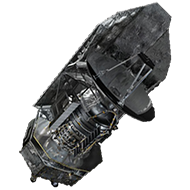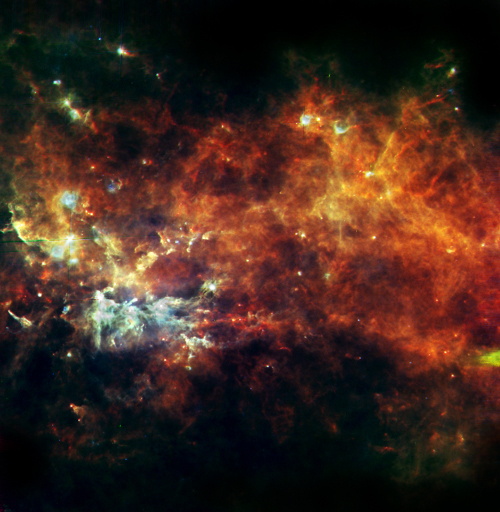| Basic Information | |
| What is this? | A region of the Galactic Plane showing stars forming in filaments |
| Where is it in the sky? | Towards the constellation of Vulpecula |
| How big is it? | The image is two degrees across |
| How far away is it? | The material is thousands of light years away |
| What do the colours represent? | Red material is colder, while blue is warmer |
Downloads
See this object in:
This image combines data from PACS and SPIRE to form a three-colour image. PACS images at 70 microns (blue), 160microns (green) are combined with the SPIRE 250 microns channel (red). Cooler material is shown in red, while warmer material is blue – but all just 10-50 degreen above absolute zero. This image is taken in constellation of Vulpecula and shows the entire assembly line of newborn stars. The diffuse glow reveals the widespread cold reservoir of raw material which our Galaxy has in stock for the production of new stars.
As this cool material flows around, it collides with itself and forms filaments of dust threading through the Galaxy. These filaments house denser clumps, with the gas and dust radiating away its heat. When the clumps get large enough and dense enough, their own gravity causes a stellar embryo to form, eventually becoming a star in its own right.
This image is taken as part of a project called “Hi-GAL”, which aims to image a strip across the plane of our Galaxy towards its central regions. This is a section 60 degrees away from the centre of our Galaxy.

